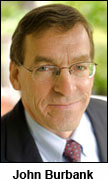OPINION
Our tax dollars shouldn’t subsidize big corporate profits
What would you think if you could just drive over to your local Apple Store and when you walked in, they handed you a new iPad. For free. You wouldn’t believe it. That’s because you know that in a market economy like ours, you have to pay for a lot of the things you desire.
But what happens when you drive over Stevens Pass just after the first snow storm? You are only able to do so because it has been cleared by a state snowplow crew. They don’t stop you and charge you for that service. You pay your taxes, and having the roads cleared is part of government.
How about when your child starts kindergarten and advances up through elementary school, learning to read, write, add, subtract, multiply, make statistical calculations, study basic science, and think? Is there a monitor at the school door, turning away kids who haven’t bought their daily tickets? Nope. Educating children is part of what we collectively pay for with our taxes.
What if you are a business like Boeing, anxious to bring in the next generation of workers as the baby boomers retire? The community colleges, like Edmonds, are training workers for aerospace. The University of Washington graduates a pool of engineers from which you can pick and choose. State Route 526 provides part of the transportation infrastructure to get workers and airplane components to Paine Field. All those things are paid for with taxpayer dollars.
So you might think that Boeing pays an appropriate amount of taxes for the things from which it benefits, like K-12 education, community colleges, highways, and the state patrol – but sadly, you’d be mistaken. Boeing bullied the state legislature into a $3.2 billion tax rebate package instead, which might be okay, if Boeing actually made the new 787 in Washington. Instead, they have contracted out production all over the world. And now they are building a new 787 site in South Carolina. So our tax give-away has worked out pretty well for them… but not for us!
Of course, Boeing is a big company. Perhaps it pays more than its share of federal taxes? Nope. From 2008 through 2010, Boeing didn’t pay federal taxes. They figured out how to legally get money from the federal government as a tax rebate – so much, that their tax rate was negative 1.8 percent. On a three year profit of almost $10 billion, Boeing actually received $177.6 million from the federal government. And not in exchange for making planes, either; it was just money from the taxpayers delivered to Boeing’s Chicago headquarters.
Paccar is another corporate leader in Washington. The company makes Peterbilt and Kenworth long haul trucks, and they are completely dependent on the interstate highway system. It is a pretty simple equation: no highways, no driving, no trucks to make and sell. Do Peterbilt trucks get turned back at the on-ramps for I-5 if they don’t pay? No, they use these highways like everyone else. And because everyone uses them, government collects taxes to pay for their construction and maintenance.
So let’s look at what Paccar paid in federal taxes. Its profit over three years was $365 million dollars. But instead of paying taxes, they received $112 million from the government. That is a negative tax rate of 30 percent. Overseeing this sleight of hand, PACCAR’s CEO received $7.7 million in compensation in 2010. That’s what passes for corporate leadership these days.
There’s no reason to subsidize already over-the-top corporate profits with added-on cash from the federal government. But that’s what we are doing. It’s no way to run a government, giving away the store. It is no way to run a corporation. You don’t give away iPads, and it’s unethical to lobby for loopholes that mean other companies – and everyday taxpayers – pay your way.
It is time to turn off the spigot of taxpayer money flowing into already overstuffed corporate pockets. We need it for education, health care, and transportation. Those are the public services we expect government to provide. We all benefit from them, and all who are able should help pay for them.
John Burbank is the executive director and founder of the Economic Opportunity Institute in Seattle. He can be reached at john@eoionline.org.






